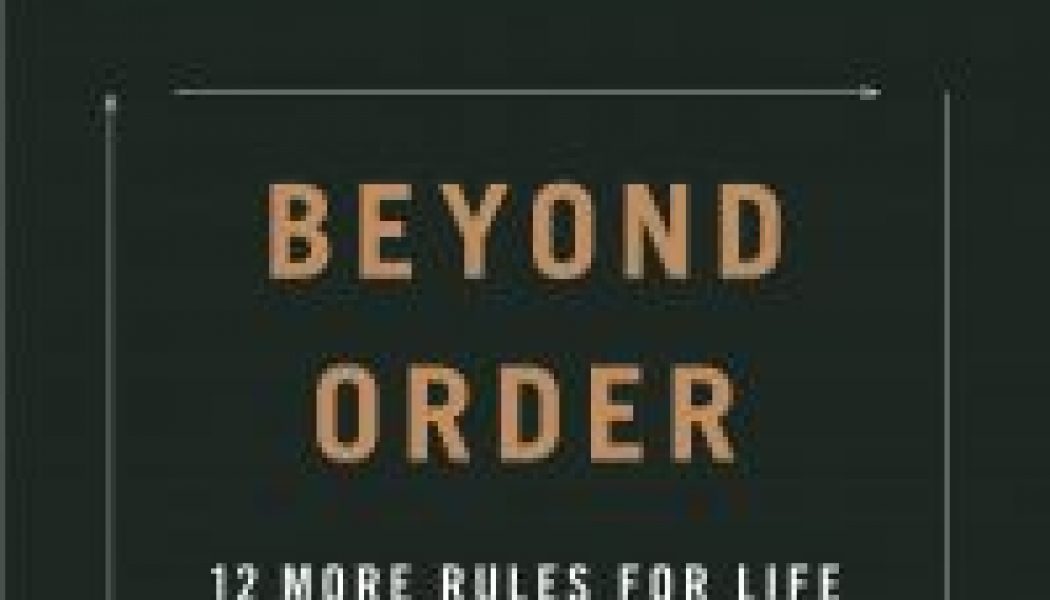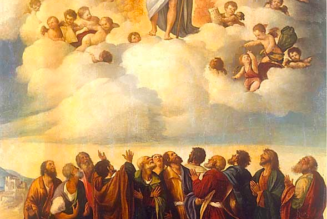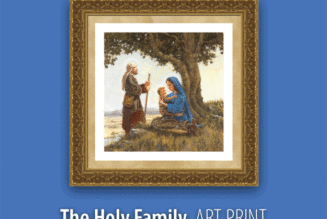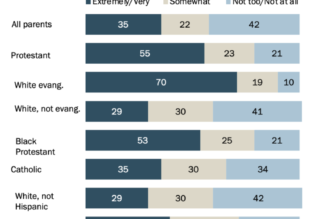In his runaway 5 million copy bestseller “12 Rules for Life: An Antidote to Chaos” (Random House Canada, $25.95), Jordan Peterson emphasized the need for order. In his new book “Beyond Order: 12 More Rules for Life” (Portfolio / Penguin, $29), he worries about the opposite danger: the attempt to eliminate chaos.
A meaningful life, Peterson argues, is lived on the border of order and chaos, of conservatism and liberalism, of preserving the wisdom of the past and creating transformation for the future. Without order, the present is too tumultuous, dangerous, and unpredictable. Without chaos, the present is too stultified, stifling, and sterile. We need yin, but we also need yang.
Peterson is known for his simple piece of advice, “Clean your room.” But cleaning your room is not enough.
In “Beyond Order,” Peterson advises us to make one room in our home as beautiful as possible, “As it is said, ‘Man shall not live by bread alone’ (Matthew 4:4). That is exactly right. We live by beauty. We live by literature. We live by art. We cannot live without some connection to the divine — and beauty is divine — because in its absence life is too short, too dismal, and too tragic.” We need beauty as a window to the transcendent.
“If of thy mortal goods thou art bereft, / And from thy slender store / two loaves alone to thee are left, / Sell one, and with the dole / Buy hyacinths to feed thy soul.”
Peterson quotes poets like Whitman, Blake, and Wordsworth, and notes the hushed awe that people have in museums before priceless works of art.
A great artist manifests creativity that renews society, and this renewal is always necessary.
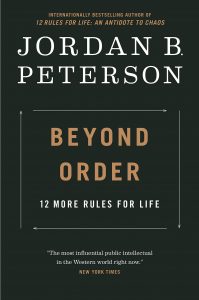
“Everything changes,” Peterson writes. “Pure traditionalism is doomed for that very reason. We need the new, merely to maintain our position. And we need to see what we have become blinded to, by our very expertise and specialization, so that we do not lose touch with the Kingdom of God and die in our boredom, ennui, arrogance, blindness to beauty, and soul-deadening cynicism.”
We cannot live in the past, pretending as if time has stopped. Of course, as C.S. Lewis pointed out in critiquing chronological snobbery, the need for change does not mean that whatever is most recent is therefore better than what came before. We need practical wisdom to discriminate between true developments making for a better future and changes that inadvertently undermine the tacit knowledge of social institutions.
Although a champion of individual responsibility, Peterson’s new book recognizes the indispensable role of marriage, family, and community. “Beyond Order” emphasizes the need for family, friends, and community in order to gain the wisdom necessary for upright living.
“People depend on constant communication with others to keep their minds organized. We all need to think to keep things straight, but we mostly think by talking. We need to talk about the past, so we can distinguish the trivial, overblown concerns that otherwise plague our thoughts from the experiences that are truly important. We need to talk about the nature of the present and our plans for the future, so we know where we are, where we are going, and why we are going there.”
Indeed, it was Peterson’s friends and family, and especially his wife, who enabled him to endure and to continue to endure unbelievably awful health challenges.
We need wisdom from the social world of family and friends, a wisdom found not just in explicit rules but also in the practices and customs that we inherit. Perhaps the most important inheritance are the stories and myths of archetypal figures, the evil Queen, the benevolent Mother, the loving Father, the domineering Tyrant, the hero and the adversary.
Interwoven with stories from his clinical practice of psychology, Peterson explicates the story of St. George and the dragon, Disney’s “Sleeping Beauty,” J.R.R. Tolkien’s hobbit, and J.K. Rowling’s Harry Potter. But Peterson grants special attention to the stories that most profoundly shaped our culture: the stories of the Bible.
These stories, especially the story of Christ, approach a kind of limit. Jesus is the greatest of all heroes who faces the greatest of all adversaries, the serpent who threatens us with eternal death, to secure the greatest of all treasures, eternal life for all who believe in him. Peterson wonders whether this myth became fact, but there is no doubt that he respects the power, beauty, and majesty of the greatest story ever told.
These myths and stories enable us to develop the wisdom needed to avoid rigid rule-following when breaking rules of human construction is exactly what is needed. These stories also help us to avoid a libertinism that fails to recognize why the rules were there in the first place. Before we tear down any fence, as G.K. Chesterton noted, we first need to know why the fence was erected in the first place.
The stories of Jesus found in the Gospels, Peterson writes, “portray the existential dilemma that eternally characterizes human life: it is necessary to conform, to be disciplined, and to follow the rules—to do humbly what others do; but it is also necessary to use judgment, vision, and the truth that guides conscience to tell what is right, when the rules suggest otherwise.” Jesus, as the true hero, manages this balance perfectly.
In “Beyond Order,” Peterson develops his vision in significant ways. Peterson the humanist, the lover of poetry, and the husband is added to the scientist, the clinician, and the professor. This work is a fitting companion to “12 Rules for Life,” but is in many ways more rich, complete, and balanced.
Join Our Telegram Group : Salvation & Prosperity
